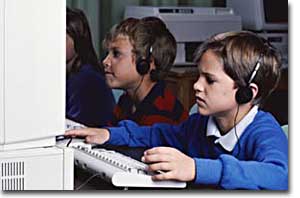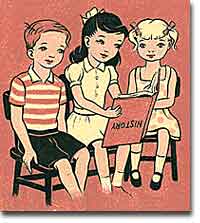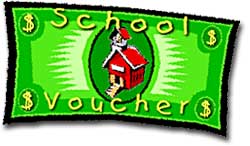12c. Who Pays for Education?

The increasing need for technology in the classroom has further complicated the already heated debate over school funding. How much technology do students need, and who is going to pay for it?
Democracy depends on an educated citizenry.
If individuals are to participate in government, they need to be able to read and write, and they should also know something about their country — its people, its history, its geography. Public education is the single largest expenditure for state and local governments across the nation. Yet it is arguably the most criticized. Many people charge that public schools are faltering and that American academic achievements are far behind those in other countries. In recent years, many states and localities have experimented with improving public schools.

The prevailing view is that our public schools are in crisis, and that significant reform measures are needed urgently. But does this grim view reflect the whole picture?
Unlike the practice in most other countries, state and local governments in the United States provide most of the funding for education. Part of the reason is the traditional belief that communities need to take care of their own children. Others assume that the federal government cannot understand the educational needs of a community's children as well as local officials. States vary a great deal in the extent to which education is funded by local governments or state governments. For example, in Hawaii the state pays about 90% of educational expenses, as compared to New Hampshire, where 90% is paid by the local school district.
One result of state and local funding is a great deal of inequality in the amount of money that school districts have to spend on public education. Because most schools are funded by property taxes, many prosperous communities are able to collect more taxes than are poor communities, where property values are much lower. Critics maintain that this situation creates inequities in the quality of schools, resulting in inadequate education for poor children. A number of programs currently are attempting to improve the quality of public education, particularly in poor school districts:
- Vouchers. Some people believe that poor quality public education results from a lack of competition. In effect, they argue, school districts have monopolies in educating children in their area. Vouchers attempt to remedy the situation by providing parents with a set amount of money to pay for their child's education in a public or private school of their choice. The plan assumes that parents will choose the best available schools for their children. Failing schools will either improve their quality of education or find themselves without students. In either case, supporters of vouchers believe that competition will improve education. Opponents criticize vouchers for draining additional funds from communities that most need them and for allowing parents to use public money to send their children to religious schools.
- Charter schools. This reform does not go as far as vouchers, but it still provides publicly funded alternatives to standard public schools. Individuals or groups in communities may start charter schools they believe will provide a better education. They must work with the local school board to provide funding. No money is given to parents as with vouchers, but parents may choose which school — standard or charter — their children attend.
- National student testing. This reform advocates that students be given national exams in various subjects to measure their accomplishments by an objective standard. Supporters believe that weak school districts will be exposed and that the tests will give them the incentive to improve their delivery of education. Critics say that standardized testing causes teachers to "teach to the test," and that creativity in the classroom is inhibited. Others believe that the tests are unfair to minorities because they are culturally biased toward the majority.

Education has ranked among the issues about which Americans feel most strongly, according to recent public opinion polls. Inequalities between affluent and needy areas have created an education gap across America. While some turn to vouchers, charter schools, and national testing for the answers, others see solutions within the current framework. Class sizes have been mushrooming, and the courts have imposed more and more spending mandates on school districts since 1975. Until progress is made, education is likely to be a top priority for Presidents, Governors, and school board members alike.







